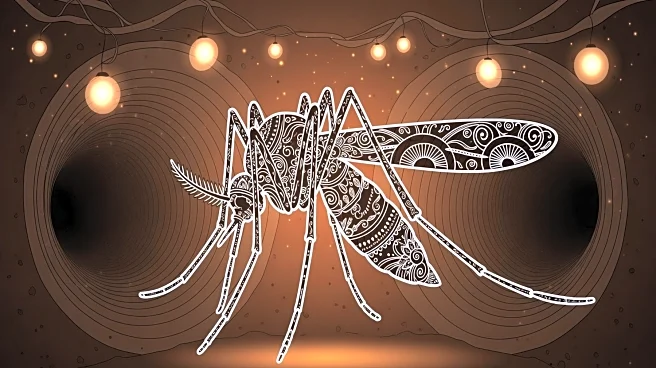What's Happening?
A new genetic study has debunked the long-held belief that a unique species of mosquito evolved in the London Underground. The research, led by Yuki Haba from Columbia University, analyzed DNA from mosquitoes
worldwide and found that the so-called 'London Underground mosquito' actually originated in the Mediterranean region. The study suggests that the mosquito, known as Culex pipiens form molestus, adapted to underground environments long before the construction of the London Tube. The findings challenge previous theories that the mosquito evolved specifically in London's subterranean tunnels during World War II.
Why It's Important?
This study provides new insights into the adaptability and migration patterns of mosquitoes, which have significant implications for public health and urban planning. Understanding the origins and behaviors of mosquito species can help in developing strategies to control their populations and prevent the spread of diseases. The research also highlights the importance of genetic studies in debunking myths and improving our understanding of species evolution. As urban environments continue to change, such studies are crucial in predicting how species might adapt and impact human populations.
What's Next?
The findings may prompt further research into the genetic diversity and adaptability of mosquito species in urban environments. Scientists and public health officials might explore new methods to manage mosquito populations, particularly in cities where they pose health risks. The study also opens up discussions on how urban development can inadvertently create habitats for pests, emphasizing the need for integrated pest management strategies in city planning.
Beyond the Headlines
The study underscores the role of historical and environmental factors in shaping species evolution. It also raises questions about how urban myths can influence scientific research and public perception. The research may lead to a broader examination of other species believed to have unique urban adaptations, potentially reshaping our understanding of urban ecology.











